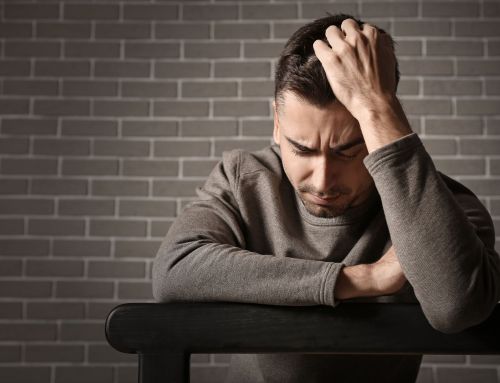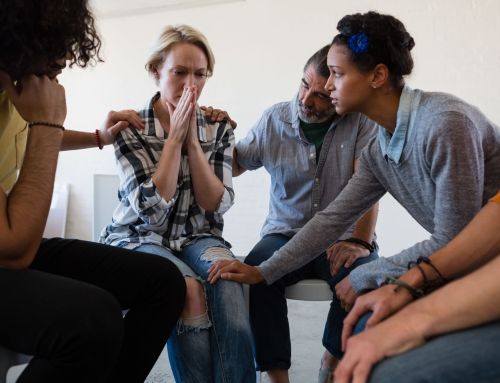
Addiction Does Not Affect Only the Person with Addiction
Addiction does not affect only the person struggling with substance abuse; the disease often spills over to the person’s loved ones.
It might seem like as a loved one; you are not affected by the decisions and lifestyle of your friend or family member who is addicted.
It is essential to know that the word “addict” in this article is not only referring to individuals addicted to “street drugs,” but also people addicted to alcohol.
If you begin to truly open up about the choices and decisions you have made, you suddenly might start to understand that your life is just as affected as that of the person struggling with addiction.
North Jersey Recovery Center has set up structures that aid open conversations that help both the person struggling with substance abuse and those around them.
It is crucial to have a support system in your journey to recovery, and our specialists understand that.
Family and Addiction
Over time, the structure of families has developed.
It has grown to be more than the traditional nuclear family.
We now have single-parent families, foster families, blended families, and many others.
The way each family is affected differ based on their structure.
An example of such differences is evident when a child develops a denial system that protects them from the reality of their parent’s addiction.
On the other hand, a single parent household does not have that option.
The children are more likely to behave in a way that does not match their age to compensate for their parent’s deficiency.

The Extended Family is Not Left Out
Although the nuclear family feels the effects of substance abuse by a loved one directly, the extended family isn’t left out.
Members of the extended family might feel anger, embarrassment, anxiety, and sometimes even grief.
These reactions can often have a negative impact on both the person abusing substances and other generations. For example, a parent whose parent abused substances has the tendency of being overbearing and overprotective of his or her children.
There are patterns of interactions with different family structures that are often noticed when someone is addicted to drugs or alcohol.
Some of these include;
- Negative Attitude: The communication between the members of the family is characterized by negativity. The entire atmosphere is downright gloomy, and constructive actions are not popular amongst members of the family. Most times, communication takes the form of complaints, verbal disapproval, and other types of displeasure.
- Parental Inconsistency: Disregard for responsibilities is one of the effects of addiction. Children often get confused because a clear boundary has not been drawn by the people or person in charge (parents). Without this set of rules and regulations both parent’s and children’s cannot be predicted. These inconsistencies are often present irrespective of the person abusing substances.
- Unrealistic Expectations from Parents: It is no news that the influence of parents primarily affects their children. A parent’s expectations can be unrealistic. This often causes both parties to spiral out of control when their expectations cannot be met. When the expectations are too high, the child might give up and become lackadaisical. On the other hand, they may work obsessively.
Self-medication, miscarriage of emotions, and parental denial are also some of these patterns of interaction.
The best way to deal with all these cases is a complete restructuring of the family.
At North Jersey Recovery Center, we have well-trained professionals that are skilled in family therapy and other programs that help reunite the family.
Family Help and Addiction
Family members play a significant role in their loved one’s recovery.
Studies show that family support in the process of intervention contributed largely to the recovery success amongst addicts. The important thing is to be there for your loved one struggling with recovery during their trying times.
At North Jersey Recovery Center, we have various treatments for those having a hard time quitting drugs and alcohol.
Some of these include Detox, Inpatient, Outpatient, Interventions, and other forms of treatment that will help your journey.
It is important to understand the feelings of family members, as members of your family form the essential support a person who is addicted to any substance needs.
The avenue by which these feelings are passed across is also as important.
During interventions, family members or loved ones often get hurt or confused.
These feelings are counterproductive to the recovery process of a person struggling with addiction or substance abuse.
This is why it is important to know how to help families with addiction.
However, there are strategies used to turn these ill feelings into positive motivation.
Some of these strategies include family therapy, counseling, family support groups, and open discussions.
The goal is to equip family members with the information and skill they will need in the journey ahead.
Once the family dynamic is stable, a stable support system is more guaranteed, and the chances of a successful recovery are higher.

Addiction and Mental Health
An individual with both a mental health issue and an addiction problem is often more challenging to treat.
The term used to describe this is called a co-occurring disorder or a dual diagnosis.
Both the mental health issues and the drug or alcohol have their own peculiar symptoms. Most of these symptoms prevent you from carrying out your regular activities.
The situation gets more complicated because the co-occurring disorders also affect each other.
When there is no help for a person struggling with addiction, their mental health problems usually become more severe.
On the other hand, when a mental health issue goes untreated, substance abuse often gets worse.
The team of professionals at North Jersey Recovery Center is well equipped to handle your co-occurring disorder.
We ensure that every patient is paired with the most professional and highly trained addiction specialists in the country in a unique plan established for your recovery.
You can be sure that you or your loved ones are in good hands.
Payment Methods and Free Insurance Verification
The services we offer at North Jersey Recovery Center are top-notch.
We aspire to give each client a blissful experience, including payment methods that are suitable for you and your loved ones.
We accept most PPO insurance, private pay options, and we also offer payment plans.
Wee aim to provide quality services at affordable prices.
To make your experience more stress-free, we take on the burden of communicating with your insurance provider on your behalf.
We aim to ensure that you or your loved one get the help they need.
Treatment at North Jersey Recovery Center
Whenever family therapy is adopted in the treatment of an individual struggling with addiction, social problems associated with substance abuse should be considered.
Often, issues such as joblessness, domestic violence, child abuse, or neglect are noticed among families dealing with substance abuse.
Our team works together with professionals in other fields to effectively treat these issues to ensure effective concurrent treatment.
Furthermore, multifamily group therapy, individual therapy, and psychological consultation can be added to family therapy.
These various approaches aid concurrent treatment.
Also, empowering the family is a crucial benefit that should not be sacrificed.










